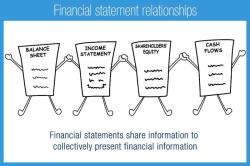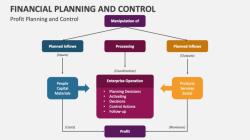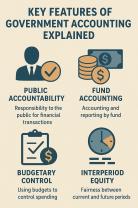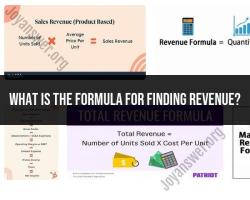Where can I open a checking account online?
In today's fast-paced digital world, managing your finances has become more convenient than ever, thanks to the widespread availability of online checking accounts. Gone are the days when opening a new bank account meant a trip to a physical branch, waiting in line, and filling out endless paperwork. Now, with just a few clicks and some basic information, you can set up a fully functional checking account from the comfort of your home, or anywhere you have an internet connection. This shift towards digital banking isn't just a trend; it's a testament to the evolving needs of consumers who prioritize speed, efficiency, and accessibility.
The benefits of opening a checking account online are numerous and compelling. You'll often find a faster setup process, allowing you to access your funds and start managing your money almost immediately. Online accounts typically come with intuitive digital tools for easy account management, including robust mobile apps, online bill pay, and instant fund transfers. These features empower you to stay on top of your finances, track your spending, and achieve your financial goals with unprecedented ease.
This comprehensive guide will walk you through everything you need to know about opening a checking account online. We'll explore the best banks offering these services, delve into the essential features to look for, detail the documents you'll need, and provide crucial tips for secure online banking. Whether you're a digital native or new to the world of online finance, by the end of this article, you'll be well-equipped to make an informed decision and choose the perfect online checking account for your needs.
Where Can You Open a Checking Account Online?
The landscape of online checking accounts is diverse, encompassing a wide range of financial institutions. You can generally open an online checking account with three main types of providers: fully online banks, traditional banks with online services, and credit unions. Each offers a unique set of advantages, catering to different preferences and financial situations.
Fully digital banks, also known as neobanks, operate exclusively online, meaning they have no physical branches. This operational model allows them to often offer lower fees, higher interest rates on balances, and cutting-edge digital tools. Popular examples in this category include Chime, Ally Bank, Discover Bank, and Capital One 360. These banks are designed for the modern user who is comfortable managing all their finances through a website or mobile app. Their services are often streamlined, focusing on mobile-first experiences, early direct deposit, and integrated budgeting tools.
Traditional banks, on the other hand, have a long-standing physical presence but have significantly invested in their online platforms. Major institutions like Chase, Bank of America, Wells Fargo, and Citibank all offer robust online checking account opening processes and comprehensive digital banking services. While they maintain their branch networks, allowing for in-person support when needed, their online offerings are often competitive, providing a hybrid approach that appeals to those who appreciate the option of physical branches alongside digital convenience.
Credit unions, which are member-owned financial cooperatives, also provide online checking account options. While many credit unions are local, a growing number offer online account opening to expand their reach. They often pride themselves on personalized customer service and a community-focused approach, frequently offering competitive rates and lower fees due to their non-profit structure. Examples like Alliant Credit Union offer a fully digital experience, combining the benefits of a credit union with the convenience of online banking.
The primary difference between fully digital banks and traditional banks with online services lies in their infrastructure and emphasis. Fully digital banks are built from the ground up for online operations, which can translate to more innovative digital features and cost savings passed on to customers. Traditional banks, while offering excellent online tools, may still have some legacy systems or higher operating costs associated with their physical branches, which can sometimes be reflected in their fee structures or interest rates. Choosing between them often comes down to how much you value physical branch access versus a purely digital, often more agile, banking experience.
What Are the Best Banks Offering Online Checking Accounts?
When it comes to selecting the best online checking account, several factors come into play, including interest rates, fees, and the quality of digital features. Here's a look at some top-rated banks that consistently deliver excellent online checking experiences:
Ally Bank: Consistently ranked highly for its customer service and competitive interest rates on checking balances, Ally Bank offers a truly comprehensive online banking experience. Features include fee-free ATM access through a vast network, early direct deposit, and robust online budgeting tools. They are known for having no monthly maintenance fees and reimbursing ATM fees, making them a strong contender for those looking to maximize their earnings and minimize costs.
Discover Bank: Similar to Ally, Discover offers an interest-bearing checking account with no monthly fees. They stand out with a unique cashback debit card program, allowing you to earn cash back on everyday purchases. Discover also provides extensive ATM access and excellent 24/7 customer support, making it a well-rounded option for those who want to earn rewards while banking.
Capital One 360 Checking: Capital One 360 combines the convenience of online banking with access to Capital One Cafés and a network of ATMs. Their checking account offers no monthly fees, competitive interest rates, and early direct deposit. Their mobile app is highly rated, providing a seamless experience for managing your money, paying bills, and depositing checks remotely.
Chime: As a leading neobank, Chime is particularly popular for its user-friendly mobile app, fee-free banking (including no overdraft fees with their SpotMe® service for eligible customers), and early direct deposit features. While it doesn't offer interest on checking balances, its focus on eliminating fees and providing advanced mobile tools makes it an attractive option for those looking for simplicity and affordability.
Charles Schwab Bank High Yield Investor Checking Account: This account is ideal for those who also have investment accounts with Schwab. It offers unlimited ATM fee rebates worldwide, no monthly service fees, and pays interest on all balances. While it caters to a specific demographic, its global ATM access is a significant perk for travelers.
Comparison Table: Top Online Checking Accounts
| Bank | Monthly Fee | Interest Rate | ATM Access | Standout Feature |
| Ally Bank | $0 | Yes (APY Varies) | Allpoint Network + ATM Fee Reimbursements | High-yield interest, excellent customer service |
| Discover Bank | $0 | Yes (APY Varies) | Allpoint Network + no ATM fees | 1% Cashback Debit Card |
| Capital One 360 | $0 | Yes (APY Varies) | Allpoint/MoneyPass + Capital One ATMs | Integrated banking and investing |
| Chime | $0 | No | MoneyPass + 60,000+ fee-free ATMs | Early direct deposit, SpotMe® overdraft |
| Charles Schwab Bank | $0 | Yes (APY Varies) | Unlimited ATM fee rebates worldwide | Global ATM access, investment integration |
Note: Interest rates (APY) are subject to change and may vary. Always check the bank's current offerings.
These banks highlight the breadth of options available, each catering to slightly different financial priorities. Whether you prioritize high-yield interest, cashback rewards, or advanced mobile features, there's likely an online checking account that fits your needs.
How Do You Compare Fees and Features of Online Checking Accounts?
Choosing the right online checking account requires careful consideration of its fees and features. While many online banks boast "fee-free" accounts, it's crucial to understand what that truly means and to compare the fine print.
Key factors to evaluate include:
Monthly Maintenance Fees: This is often the first thing people look for. Many online checking accounts pride themselves on having no monthly service fees, which can save you a significant amount over time compared to traditional accounts that might charge $10-$15 per month unless certain conditions are met (e.g., minimum balance, direct deposit).
ATM Access and Fees: Online banks rely heavily on ATM networks. Check if the bank offers a wide network of fee-free ATMs (like Allpoint or MoneyPass) and whether they reimburse out-of-network ATM fees. Unlimited reimbursements, as offered by some, can be a major advantage, especially if you travel frequently.
Overdraft Fees: Overdraft protection can be a costly service. Some online banks, like Chime, offer fee-free overdraft services up to a certain limit for eligible customers (e.g., SpotMe®). Others might charge a flat fee per overdraft transaction, which can quickly add up. Understanding the bank's overdraft policy is essential to avoid unexpected charges.
Minimum Balance Requirements: While less common with online checking accounts, some accounts might require a minimum daily balance to waive fees or earn interest. Ensure you can comfortably meet these requirements if they exist.
Perks and Rewards:
High-Yield Interest: A significant advantage of many online checking accounts is the ability to earn interest on your balance, often higher than what traditional banks offer. This can help your money grow passively.
Early Direct Deposit: Many online banks offer to make your paycheck available up to two days earlier than traditional banks, which can be a valuable perk for managing cash flow.
Cashback Rewards: Some debit cards, like Discover's, offer cashback on purchases, turning everyday spending into small savings.
Sign-up Bonuses: Keep an eye out for promotional offers where banks provide a cash bonus for opening an account and meeting certain deposit or spending criteria.
Customer Support: While online banks excel in digital tools, good customer support is still vital. Check for 24/7 support options, whether via phone, chat, or email, and read reviews about their responsiveness and helpfulness.
Digital Tools and Mobile App: Evaluate the quality of the bank's mobile app. Does it allow for easy mobile deposits, bill pay, fund transfers, budgeting tools, and account alerts? An intuitive and feature-rich app is crucial for a smooth online banking experience.
Tips for Evaluating Accounts:
Understand Your Habits: Do you frequently use ATMs? Do you tend to overdraw your account? How often do you need customer support? Your banking habits should guide your choice.
Read the Fine Print: Always review the bank's fee schedule and terms and conditions carefully before opening an account.
Prioritize Your Needs: Decide what features are most important to you—is it earning interest, avoiding fees, or robust mobile tools? Rank these priorities to narrow down your options.
What Documents Are Needed to Open an Online Checking Account?
Opening an online checking account is generally a straightforward process, but you'll need to have certain documents and information ready to verify your identity and comply with federal regulations like the Patriot Act. This act requires financial institutions to obtain, verify, and record information that identifies each person who opens an account.
Here's a list of typical documents and information you'll need:
Government-Issued Photo ID: This is paramount for identity verification. Acceptable forms usually include:
Driver's license
State-issued identification card
Passport
Military ID
Social Security Number (SSN) or Individual Taxpayer Identification Number (ITIN): This is required for tax reporting purposes and to verify your identity.
Proof of Address: Banks need to verify your current residential address. This can often be done with:
A recent utility bill (electricity, water, gas)
A recent bank statement (from another bank)
A lease agreement
A driver's license (if it shows your current address)
Initial Deposit: Many online checking accounts require an initial deposit to fund the new account. The amount can vary widely, from $0 to a few hundred dollars. You'll typically fund this deposit via:
Electronic transfer from another bank account (using routing and account numbers)
Debit card or credit card
Mobile check deposit (less common for initial funding, but possible)
Contact Information: You'll need to provide your current phone number and email address for communication and security purposes.
Verification Steps:
After submitting your application and documents, banks often have a verification process. This might involve:
Instant Verification: Some banks can instantly verify your identity using third-party databases.
Micro-deposits: The bank might make two small deposits (e.g., $0.15 and $0.23) into your existing account, and you'll be asked to confirm the amounts to verify ownership.
Calling a Phone Number: A representative might call your provided phone number to confirm details.
Guidance for Specific Situations:
Minors: Generally, individuals must be 18 years or older to open a checking account. However, many banks offer joint accounts for minors (usually 13 and up) that are co-owned by a parent or legal guardian. The parent or guardian will need to provide their own identification and SSN.
Non-US Residents: If you are not a US citizen or permanent resident, opening a checking account can be more complex. Some banks might allow non-US residents to open accounts with an ITIN, a foreign passport, and proof of a US address, but policies vary significantly. It's best to check with the specific bank directly.
Bad Banking History (ChexSystems): If you have a history of bounced checks or unpaid fees, you might be listed in ChexSystems, a consumer reporting agency for banks. Some online banks offer "second-chance" checking accounts for individuals with ChexSystems records, designed to help them re-establish a positive banking history.
Having all your documents organized and readily accessible before you begin the application process will make opening your online checking account quick and seamless.
How Can You Manage Your Online Checking Account Securely?
The convenience of online checking accounts comes with the critical responsibility of maintaining strong security. While banks employ advanced security measures, your active participation is essential to protect your personal and financial information.
Here are key strategies and tips for managing your online checking account securely:
Enable Two-Factor Authentication (2FA): This is one of the most effective security measures. 2FA requires you to provide two different forms of identification before accessing your account (e.g., your password and a code sent to your phone). This significantly reduces the risk of unauthorized access even if someone steals your password. Most online banks offer 2FA, typically via SMS, authenticator apps, or physical security keys.
Create Strong, Unique Passwords:
Use a combination of uppercase and lowercase letters, numbers, and symbols.
Aim for a password that is at least 12-16 characters long.
Avoid using easily guessable information like birthdays, names, or common words.
Never reuse passwords across different online accounts. If one account is compromised, others remain safe.
Consider using a reputable password manager to generate and store complex passwords securely.
Be Vigilant About Phishing and Scams:
Never click on suspicious links: Phishing emails or texts often try to trick you into revealing your login credentials or personal information. Be wary of messages requesting urgent action, threatening to close your account, or offering unrealistic rewards.
Verify the sender: Always check the sender's email address and look for inconsistencies. If in doubt, don't click; instead, navigate directly to your bank's official website or app to log in.
Banks will not ask for sensitive information via email: Your bank will never ask for your full SSN, full account number, or password via email.
Be cautious of public Wi-Fi: Avoid logging into your banking apps or websites on unsecured public Wi-Fi networks, as these can be vulnerable to eavesdropping. If you must, use a Virtual Private Network (VPN).
Monitor Your Accounts Regularly:
Check statements and transactions: Regularly review your online statements and transaction history for any unauthorized or suspicious activity. The sooner you detect fraud, the easier it is to resolve.
Set up alerts: Most banks offer customizable alerts via email or text for various activities, such as large transactions, low balances, or password changes. Utilize these to stay informed.
Keep Your Devices Secure:
Update software: Ensure your operating system, web browser, and banking apps are always updated to the latest versions. Updates often include critical security patches.
Use antivirus/anti-malware: Install and maintain reputable antivirus and anti-malware software on your computer and smartphone.
Lock your devices: Use a strong PIN, pattern, fingerprint, or facial recognition to lock your smartphone and tablet.
Be careful with app downloads: Only download banking apps from official app stores (Google Play Store or Apple App Store).
Understand FDIC Insurance: Ensure your online checking account is FDIC-insured (for banks) or NCUA-insured (for credit unions). This protects your deposits up to $250,000 per depositor, per institution, in the unlikely event the financial institution fails. Reputable online banks will prominently display their FDIC insurance status.
Report Fraud Immediately: If you suspect any unauthorized activity, identity theft, or receive a suspicious communication, contact your bank immediately through their official customer service channels. Acting quickly can limit your liability and help recover funds.
By adopting these security practices, you can confidently and securely manage your online checking account, harnessing its convenience without compromising your financial safety.
FAQ Section
Can I open an online checking account without visiting a branch?Yes, absolutely! The primary advantage of online checking accounts is that the entire process, from application to account management, can be done remotely without ever needing to visit a physical branch.
Are online checking accounts FDIC insured?Yes, reputable online banks are typically FDIC-insured, just like traditional banks. This means your deposits are protected up to $250,000 per depositor, per institution, in the event of a bank failure. Always verify a bank's FDIC status before opening an account. For credit unions, the equivalent is NCUA insurance.
How long does it take to start using a new online account?The timeframe can vary. Many online banks offer instant approval and access to your account number immediately after completing the application and verification process. You might be able to fund your account and start using it for online transactions within minutes or a few hours. However, it might take a few business days for a debit card to arrive in the mail.
Conclusion
Opening a checking account online offers unparalleled convenience, efficiency, and access to a wide array of digital tools that can significantly enhance your financial management. From faster setup times and easy mobile deposits to competitive interest rates and low-to-no fees, the benefits of digital banking are clear and compelling for today's financially savvy consumer.
However, the key to a successful online banking experience lies in making an informed decision. It's crucial to compare features, scrutinize fee structures, and understand the terms and conditions offered by different financial institutions. Consider your personal banking habits—how often you use ATMs, your need for in-person support, and your comfort level with digital tools—to select an account that aligns perfectly with your lifestyle.
Moreover, prioritizing security is non-negotiable. By implementing strong password practices, enabling two-factor authentication, vigilantly monitoring your accounts, and staying informed about potential scams, you can protect your financial information and enjoy the full advantages of online checking with peace of mind.
Ultimately, by taking the time to research and choose an online checking account that best fits your financial habits and security needs, you'll empower yourself with a modern, efficient, and secure way to manage your money in the digital age.













SecureSaver
on October 08, 2025Excellent tips on how to keep your **secure online checking account**. The reminder about two-factor authentication and avoiding public Wi-Fi is essential. Security is my top priority, and this article covered it well.